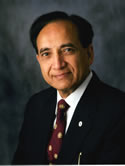Quality of life of maxillectomy patients using an obturator prosthesis Journal Article
| Authors: | Kornblith, A. B.; Zlotolow, I. M.; Gooen, J.; Huryn, J. M.; Lerner, T.; Strong, E. W.; Shah, J. P.; Spiro, R. H.; Holland, J. C. |
| Article Title: | Quality of life of maxillectomy patients using an obturator prosthesis |
| Abstract: | Background. The psychosocial adaptation of patients who had undergone a resection of the maxilla for cancer of the maxillary antrum and/or hard palate with the placement of an obturator prosthesis to restore speech and eating function was studied. Methods. Forty-seven patients were interviewed who had a maxillectomy with an obturator prosthesis at Memorial Sloan- Kettering Cancer Center, an average of 5.2 years (SD = 2.4 years) ago, 94% of whom had some of their soft palate resected. Interviews were conducted by telephone by a trained research interviewer, using a series of questionnaires to assess their satisfaction with the functioning of their obturator, and the psychological, vocational, family, social, and sexual adjustment. Measures included the Obturator Functioning Scale (OFS), Psychosocial Adjustment to Illness Scale (PAIS), Mental Health inventory (MHI), Impact of Event Scale, and Family Functioning Scale. Results. Using multiple regression and discriminant function analyses, satisfactory functioning of the obturator prosthesis, as measured by the OFS, was found to be (1) the most highly significant predictor of adjustment, as measured by the PAIS (p < .0001) and the MHI Global Psychological Distress Subscale (MHI-GPD) (p < .001), and (2) significantly related to their perception of the negative socioeconomic impact of cancer upon their lives. The most significant predictors of better obturator functioning were the extent of resection of their soft palate (one third or less, p < .001), and hard palate (one fourth or less, p < .01). Specific aspects of obturator functioning that most significantly correlated with better adjustment (PAIS, MHI-GPD) were: less difficulty in pronouncing words (r = .40 and r = .51, respectively, p < .01), chewing and swallowing food (r = .27-.46, p < .05), and less change in their voice quality after surgery (r = .52 and r = .56, respectively, p < .001). Conclusions. These findings suggest that a well-functioning obturator significantly contributes to improving the quality of life of maxillectomy patients. |
| Keywords: | adult; clinical article; treatment outcome; aged; aged, 80 and over; middle aged; patient satisfaction; quality of life; feeding behavior; questionnaires; adaptation, psychological; eating; chi-square distribution; coping behavior; regression analysis; maxilla; hard palate; maxilla resection; speech; socioeconomics; socioeconomic factors; social psychology; voice quality; bone prosthesis; maxillary neoplasms; palatal obturators; maxillofacial prosthesis; humans; human; male; female; priority journal; article; maxilla cancer |
| Journal Title: | Head & Neck |
| Volume: | 18 |
| Issue: | 4 |
| ISSN: | 1043-3074 |
| Publisher: | John Wiley & Sons, Inc. |
| Date Published: | 1996-07-01 |
| Start Page: | 323 |
| End Page: | 334 |
| Language: | English |
| PUBMED: | 8780943 |
| PROVIDER: | scopus |
| DOI: | 10.1002/(SICI)1097-0347(199607/08)18:4<323::AID-HED3>3.0.CO;2-# |
| DOI/URL: | |
| Notes: | Publisher-provided DOI does not resolve (as of 7/24/2018) -- Article -- Export Date: 22 November 2017 -- Source: Scopus |
Altmetric
Citation Impact
BMJ Impact Analytics
Related MSK Work







